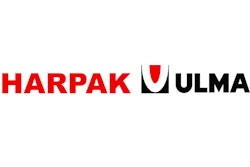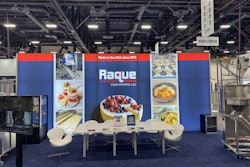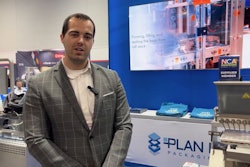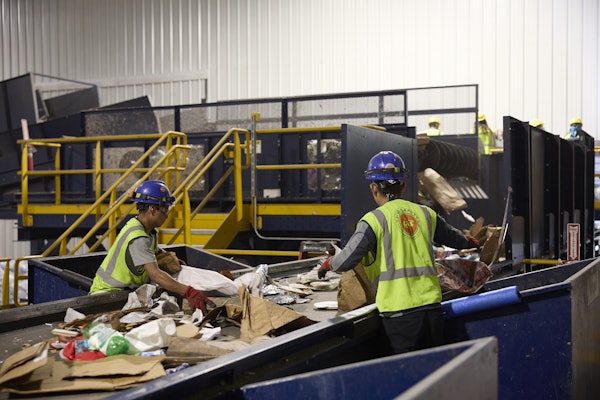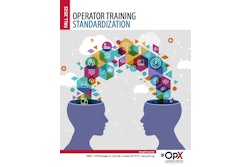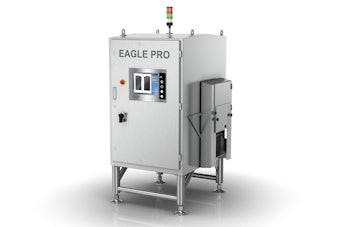Hello, my name is Carlo Braganzi with Harpack, home of Mondini packaging. We're here today at our booth at Pack Expo.
Mondini provides a wide range of primary and secondary packaging options, including tray sealing, thermoforming, flow wrapping, and secondary operations such as case packing and palletizing.
Today, one of the new pieces of equipment we’re showcasing is our Symphonia tray sealing system, which you can see behind me. You may notice it looks quite different from a typical system. In standard inline systems, trays are fed on a conveyor, loaded with product—often using automation—sent to the tray sealer, and sealed with film, sometimes using modified atmosphere for food products.
Here, we’re using what we call smart conveyance. This is a linear motor system. Coils inside each segment propel the shuttles around the track using electromagnetic force in a precise, programmable way. This allows us to achieve much greater efficiency with various forms of automation, such as nesting, dosing, robotic loading, and integration with processing equipment like slicing.
These forms of automation often benefit from different configurations. Traditional systems require everything to conform to a fixed pitch and schedule dictated by the conveyor. With the smart track system, we can optimize tray presentation for each automation step. That may mean intermittent 2-by-2 spacing for a denester and continuous 3-by-2 configuration for a doser. The system can accommodate these variations easily.
This significantly boosts OEE because each step can operate more efficiently. Another major benefit is speed. The shuttles can travel at about 4 meters per second and reach 7 Gs of acceleration. Typically, the limiting factor is simply how fast the product itself can be moved around the track.
While track-based systems have been used in other industries and are now appearing more in packaging, Mondini’s major innovation is integrating the tray sealer directly into the track. The nests, or shuttles, act as the bottom tooling. Traditional systems rely on transition points, infeed belts, and pusher arms to create spacing within the sealing tool. Precise, programmatic positioning using the nests eliminates downtime associated with tray positioning and allows faster movement into the sealing station.
The system can perform all standard types of sealing, from heat seal to modified atmosphere, and it does so at higher speeds. Another differentiator is the tooling footprint, which we’ve built to 1500 millimeters—our largest so far. Despite that, the overall machine footprint is smaller because the infeed and outfeed belts are no longer needed. The result is maximum throughput with minimal floor space: maximum throughput per unit area, both for the machine and the entire system.
The track system also allows us to condense the full production line into smaller footprints. For many customers, throughput per unit area is a key metric, especially in facilities already saturated with equipment. This system allows them to increase output without expanding their floor space.
There are additional benefits, including flexibility. The track can be designed in many shapes, and can include multiple loops where products can be vision-checked, rejected to a rework loop, or sent out for automatic changeover.
To summarize, the main benefits of the system are maximum throughput, maximum efficiency, and maximum flexibility.






